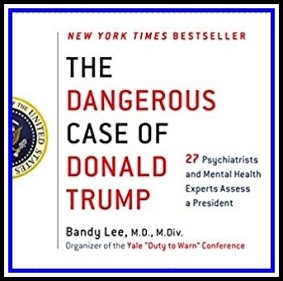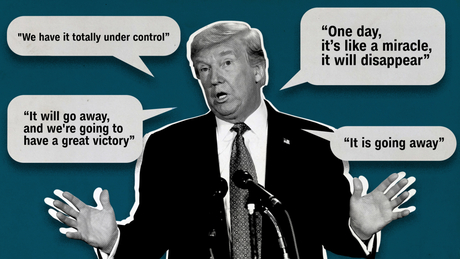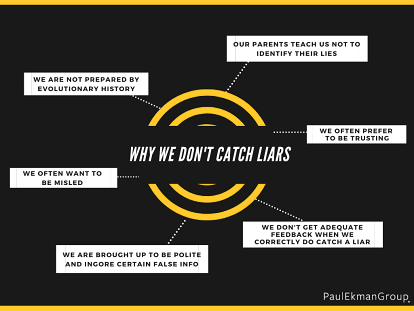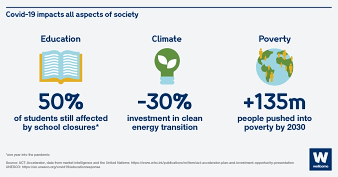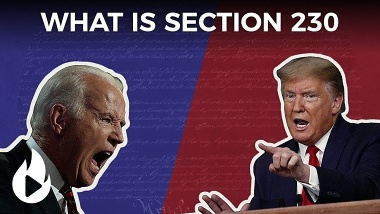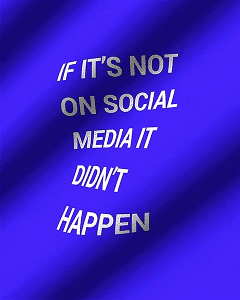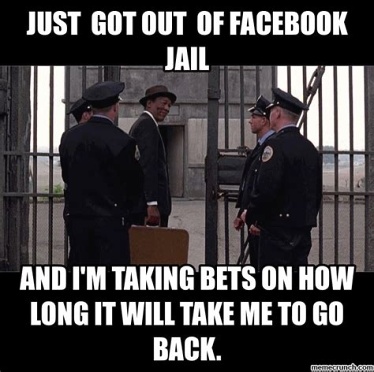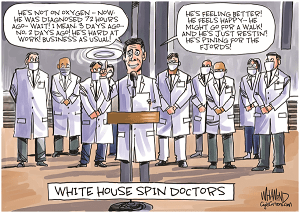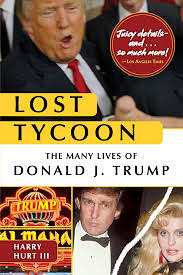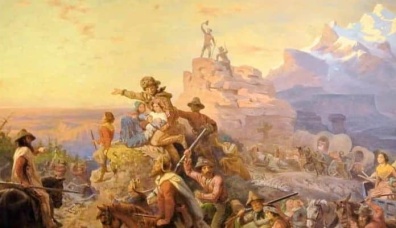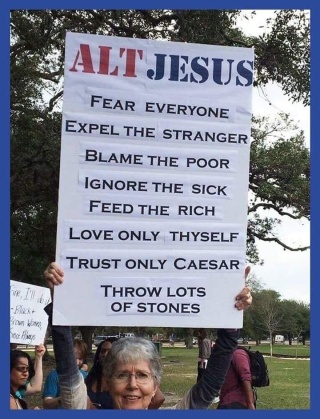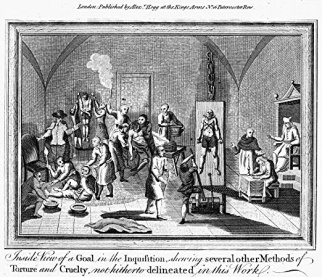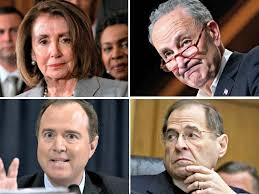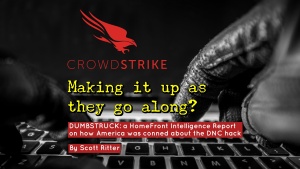by Roxanne Tellier
Since 2018, Bob Woodward has ridden a second wave of fame through his trilogy of tomes on the Dastardly Deeds of Donald the Trump.
The first book’s title, Fear:Trump in the White House, sprang from something Trump said to Woodward in a 2016 interview: “Real power is, I don’t even want to use the word, fear.” The book itself is based on “hundreds of hours of interviews with firsthand sources, contemporaneous meeting notes, files, documents and personal diaries.”
Woodward’s book portrayed a grossly incompetent, fatally flawed, likely sociopathic man, hopelessly out of his depths, having somehow risen to the very pinnacle of the Peter Principle. Worse, he’d somehow managed to alienate and ‘cancel’ any potentially competent Republicans, including his first Attorney General, Jeff Sessions, for not agreeing to his hair-brained, knee jerk solutions to global affairs. Trump subjected Sessions to more than a year of cruel personal attacks, and not so privately called Sessions “mentally retarded” and a “dumb southerner” before nastily dumping the man, and briefly replacing him with his own chief of staff, Matthew Whitaker, as acting AG, before William Barr donned the mantle.
2018 was also the year in which Michael Wolff’s Fire and Fury, and Omarosa Manigault Newman’s Unhinged, hit the stands. All three books described Trump’s “chaotic, dysfunctional, ill-prepared White House“. (CNN – Chris Cillizza)
In retrospect, these books, so shocking and titillating at the time, now merit little more than a raised eyebrow. Since then, there have been far too many books – eleventy billion at last count – exploding dozens of bombshells about the ineptitude and corruption of the Trump administration, the office and the man.
“Apres moi, le deluge,” is a French expression attributed to King Louis XV of France. “It is generally regarded as a nihilistic expression of indifference to whatever happens after one is gone, though it may also express a more literal forecasting of ruination.” (wiki)
Could the torrent of Post-Trumpian memoirs that followed Woodward and Wolff’s be any more appropriately themed?
“A duty to warn is a concept that arises in the law of torts in a number of circumstances, indicating that a party will be held liable for injuries caused to another, where the party had the opportunity to warn the other of a hazard and failed to do so.” (wiki)
Those first warning flares alerting the public to the disastrous behavior in the Oval Office acted like a starter’s pistol to a slew of bad actors, fleeing from the stench of being involved in Trump’s administration. Ghost writers made bank on the jumbled memories and stories of chaos in the White House hallways. Punters anxiously awaited each new salacious revelation, whether their goal was to confirm their own suspicions of misconduct, or to search for some misplaced tidbit that could be savaged and held up as proof of the writer’s malfeasance.
And as tome after tome in the Trump tautology has piled up on bookstands (and in my own library) I have become increasingly concerned that major, dangerously precarious moments in global history were concealed by writers more eager to scoop the competition with an explosive revelation, than to protect American and global citizens from potential catastrophes.
Bob Woodward’s book Rage revealed that Trump was well aware of the dangers of COVID-19 as early as February 2020, but that he sat on that info until his book was published that September.
Would more than a million Americans have died had Woodward been more forthcoming about Trump’s concealment of the deadly nature of COVID, believed to be five times more deadly than the common flu.?
Woodward simultaneously declares that COVID-19 “will be the biggest national security threat you [Trump] face in your presidency“, and then concludes that Trump was “the wrong man for the job.” Meanwhile, the ‘wrong man’ was telling Woodward that he “wanted to always play it down… I still like playing it down, because I don’t want to create a panic.”
Oddly, Trump’s public dismissal of the dangers of COVID is practically an afterthought in the book, as Woodward focuses on Trump’s handling of racial unrest, and his relationships with America’s highest-level official, and the leaders of Russia and North Korea.
Other writers who were active in Trump’s administration at the time were also aware of the dangers of COVID. Mark Meadows, former White House Chief of Staff, wrote in his memoir, The Chief’s Chief about how sick Trump was during COVID, and of how they all knew that he – and later they – had the virus. He talked of how Trump, his family, and their aides, despite knowing that they were infected, attended – unmasked – the Trump/Biden debate. Trump, then 74 years old, was positive for the virus when he faced Biden, then 77, on September 29, 2020.
We will never know if that was a deliberate attempt on the part of Trump and his entourage to knowingly infect his rival.
John Kelly, a retired four-star Marine general, and Trump’s second chief of staff from mid-2017 to early 2019, was alarmed enough by Trump’s actions to be secretly “listening to all” of President Trump’s conversations without telling him. He also secretly consulted the bestseller edited by Bandy Lee, and released in 2017 entitled The Dangerous Case of Donald Trump, a book in which 27 mental health professionals warned that the president was psychologically unfit for the job, then used it as a guide in his attempts to cope with Trump’s irrational behavior. Kelly and many other cabinet secretaries and White House workers believed Trump was a pathological liar, and that he was not mentally stable.
The standard excuse given by every ‘truthteller’ in their post-admin accounts, is that they believed that all that they could do under the circumstances was to try to manage the situation, in an attempt to try and save the country. Which begs the question of why they themselves believed, like Trump, that ‘only they could fix it,” when it was a problem of gargantuan proportion.
Why did all of these people with first-hand knowledge of the disaster unfolding through those four years not tell the American people these truths at the time?
As the crucial midterms approach, several more books have appeared on the scene, with the works of Maggie Haberman and Peter Baker/Susan Glasser taking the most fire for failing to warn the public of critical information in a timely fashion.
Peter Baker and wife Susan Glasser began interviewing Trump after the election, but prior to the January 6th insurrection. In The Divider, which spotlights the danger of Trump’s presidency, there is a passage that contains a quote from Trump, captured in the days following the loss of the election. “Sitting in his dining room, at one point, he saw Biden on the tv screen. “Can you believe I lost to this fucking guy?” he groused.”
Journalist Mehdi Hasan has taken writers to task, noting that, for example, Baker’s quote proves that Trump DID know, and DID concede that he lost, even though he later said that he didn’t believe that he had. Should that information have gone to the January 6th committee, rather than be stashed away in the pages of a book?
Hasan opined that, “One of the rules of journalism is to be sitting in the middle and trying to treat both sides fairly, some would say equally. But is that an appropriate approach when covering someone like Trump? There are no ‘both sides’ to a Donald Trump. There’s never been anyone like Donald Trump.”
Baker countered Hasan’s assertion by saying, “It’s factual to say that there has never been anyone like Donald Trump. I don’t think the rules of journalism require a false equivalence. I think the rules require an unblinking, straightforward, truth-focused look at what is out there in front of us, and no pretending that some things are the same.”
“There has never been a president like Donald Trump. There has never been a president that tried to overturn a democratic election, who told the public, again and again, something that he knew, or at least had reason to know, was a lie, about the stolen election. He was told by his own people, his own Attorney General, his own elections chief, his own campaign manager… All of them told him there was no basis for this, and he went out there and told people this anyway. Not only told people this, he pressured governors and secretarys of state, his own justice department, members of congress, and of course, ultimately his own vice president, to go out and do something that was wrong. So I don’t think we need to flinch away from saying that. I think that it IS journalism to point that out.”
“(During his term) Donald Trump came up with over 30,000 false or misleading statements, all catalogued in the Washington Post. We can’t trust his recitation of the facts. He tried to turn the institution of government into his own personal instruments of power. January 6th wasn’t an aberration. It was the inexorable conclusion of a four-year war on American institutions.”
Maggie Haberman, aka The Trump Whisperer, describes in her new book, Confidence Man, released in October 2022, times when Trump raised the prospect of bombing Mexican drug labs, how he thought ethnic minority staffers were waiters, and documents a history of homophobic remarks allegedly uttered by Trump.
She also writes that she knew he took top secret documents from the White House to MarALago as far back as the summer of 2021, when he alluded to it in a conversation.
In another section of the book, she reports that the White House toilet was often clogged with printed paper, and that aides believed he had torn up and flushed documents, which contravened the Presidential Records Act. Perhaps this explains Trump’s long obsession with low-flush toilets.

Pruitt called it the “hero-making business.” Producers needed the Trump brand to be massive. “So we sold him like a shiny new car, and viewers bought it. The Trump name was firmly placed by the NBC/[Mark] Burnett team on the Thursday prime-time schedule just as prominently as it was on casinos and skyscrapers, golf courses, and fake universities.”” (The Thrillist .com)
Haberman concludes that most of the affection and respect Trump acolytes have exhibited in the past, and currently, can be traced to the reality show The Apprentice, in which Trump essentially played himself, on a glittering, but fake,business facade put together by producer Mark Burnett, a fan of The Art of the Deal.
Haberman explains: “The series was staged to make the broken-down, eroding empire look magnificent for the screen… But this was the presentation that viewers saw. I didn’t really understand this until I was in Iowa, and I was interviewing voters, during the Iowa caucuses of 2016, and I was asking people at one of the final rallies a very leading question, which was, “Basically, are you here because this is the last time you’ll see him, the spectacle is ending, “ and I kept hearing, “No, I’m caucusing for him, because I watched him run his business. “ And they meant – The Apprentice. By the time he became a candidate, a lot of voters in the Republican base believed he was this hyper-successful tycoon. And that base wouldn’t believe anything else that anyone told them about him.
So, without The Apprentice, which was television, all illusion, there is no Donald Trump presidency.”
When asked how voters should consider the proven lies and misstatements by which Trump, as a defeated former president who demands to be heard, should be judged, Haberman said, “It would not be responsible to ignore what Trump is saying now, post-presidency. I do think it’s responsible to contextualize it.”
“He was (talking about birtherism) way before … 2011 … We all thought we were factchecking him, when in fact, all we were doing was spreading it further.”
Stephen Colbert, while interviewing Haberman about her new book, asked … “So, if you shouldn’t ignore him, and what he’s saying are lies, by checking the lies you REPEAT the lies and drive them further into people’s heads, so they forget the lies, and remember only the accusations… what’s left?”
To which Haberman replied, “At this point, we can’t ignore him. We should have done things differently; I just don’t think we thought about what that meant. He exists in 10 or 20 minutes increments of time, but we exist in 24 hours.”
The debate over a journalistic duty to warn seems unresolvable, under these Trumpian circumstances.




